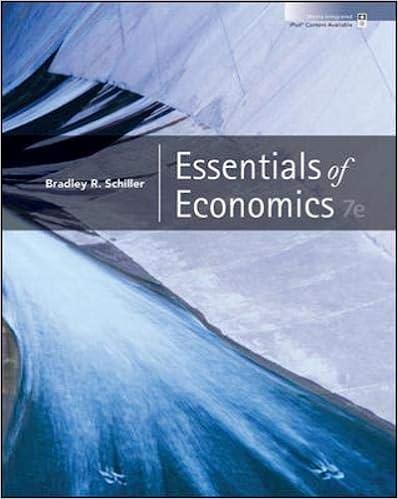1. Explain how each of the following factors would inuence aggregate demand in Canada. Be sure to explain which component of aggregate demand would be affected. (18 Marks) a) Increased fear of recession b) Increased fear of ination c) Rapid growth of real income in Japan and Western Europe d) A reduction in the real interest rate e) An increase in income taxes f) A large rise in the value of shares on the stock market 2. Supposed that economy is currently at full employment. For each of the following events, explain the short-run and long-run effects on output and the price level, assuming policymakers take no action. (12 Marks) a) The stock market declines sharply, reducing consumers' wealth. b) The federal government increases spending on national defence. c) A technological improvement raises productivity. d) A recession overseas causes foreigners to buy fewer Canadian goods. 3. Assume that a hypothetical economy with an MPC of .8 is experiencing severe recession. By how much would government spending have to rise to shift the aggregate demand curve rightward by $25 billion? How large a tax cut would be needed to achieve the same increase in aggregate demand? Determine one possible combination of government spending increases and tax increases that would accomplish the same goal without changing the amount of outstanding debt. (6 Marks) 4. Refer back to the table below (6 Marks) Real output demanded Price Level (Index number) Real output supplied (billions) (billions $506 108 $513 508 104 512 510 100 510 512 96 505 514 92 502 AS Price level (index numbers) 92 AD 502 510 514 Real domestic output, GDP (billions of dollars) Suppose that aggregate demand increases such that the amount of real output demanded rises by $7 billion at each price level. By what percent will the price level increase? Will this inflation be demand-pull inflation or will it be cost-push inflation? If potential real GDP (that is, full-employment GDP) is $510 billion, what will be the size of the positive GDP gap after the change in aggregate demand? If government wants to use fiscal policy to counter the resulting inflation without changing tax rates, would it increase government spending or decrease it









